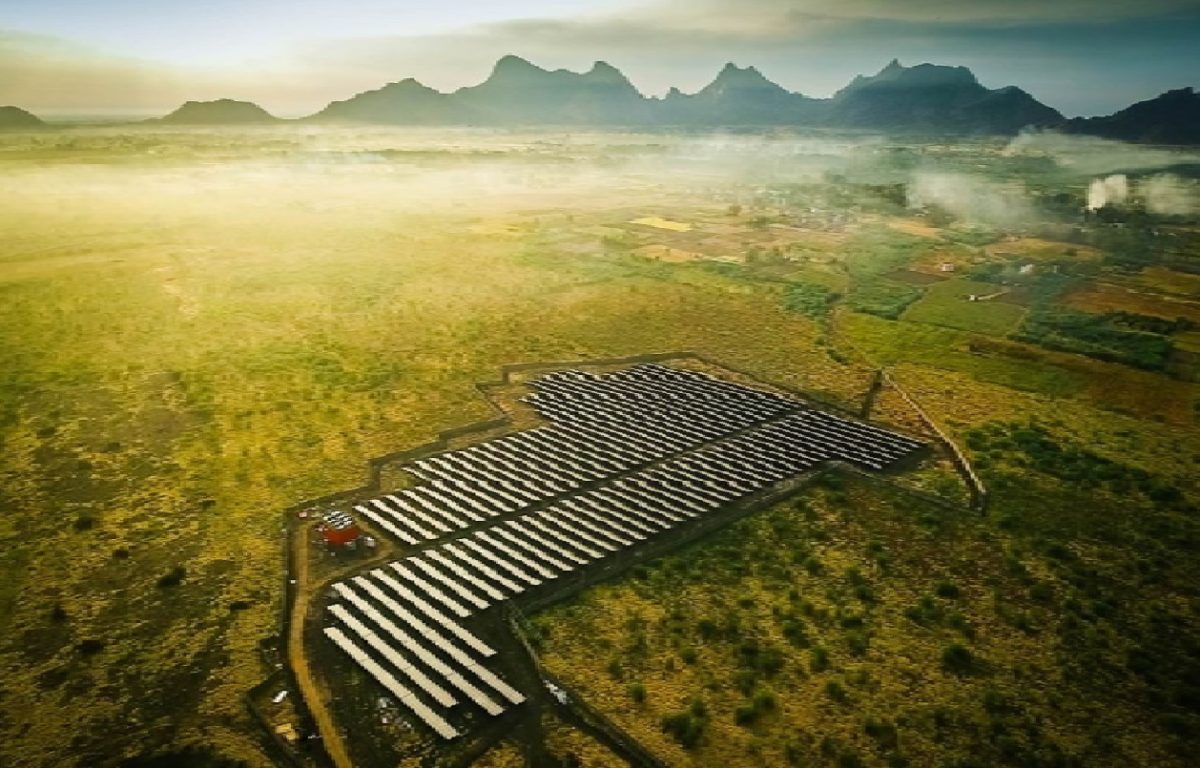According to Bridge To India, in Q1 2018, India saw a significant increase in the issuance of new utility-scale solar PV tenders. Overall, 3,766 MW of utility-scale projects, including 1,359 MW of open-access (OA) projects, were commissioned. Out of a total of 3,650 MW of tendered projects that were scheduled/anticipated to be commissioned in the quarter, 2,407 MW capacity came online.
With this, India’s total installed solar PV capacity is estimated to have reached 23,748 MW as of March 31, 2018. This includes a utility-scale solar PV capacity of 21,331 MW (90%), and a rooftop solar PV capacity of 2,417 MW (10%). The four southern states, along with Rajasthan, continue to lead, with 70% of total installed capacity.
Auctions were completed for three tenders, with a total capacity of 2,560 MW, but they were all affected by ongoing safeguard duty uncertainty. Karnataka state’s 860 MW tender saw only 640 MW of allocation at tariffs of INR 2.94-3.34/kWh.
Another 1,200 MW tender in the state was also undersubscribed, with only 550 MW of allocation to ReNew (300 MW at INR 2.91/ kWh), Avaada (150 MW at INR 2.92) and Azure (100 MW at INR 2.93). Gujarat canceled its 500 MW tender after the auction, deeming winning tariffs of INR 2.94-3.34/ kWh too high.
Leading players
In the quarter, Adani commissioned the largest capacity (640 MW) across Karnataka, Chhattisgarh and Maharashtra. It was followed by Hero (300 MW) and Acme (260 MW). Canadian Solar was the largest module supplier, with 455 MW DC of capacity supplied for projects commissioned. It was followed by Trina (398 MW), GCL (375 MW), JA Solar (363 MW) and Risen (307 MW). The top five suppliers had a combined market share of 56% by capacity commissioned.
In the inverter market, Huawei gained 22% (757 MW) market share. It was followed by ABB (584 MW) and Sungrow (527 MW).
Domestic module manufacturing volume in the quarter was 821 MW, up by 19% over previous quarter. Mundra (200 MW), Vikram Solar (166 MW) and Waaree (84 MW) were the top three manufacturers.
Equipment and EPC cost
After steadily rising for about 6-9 months, EPC cost and module prices began their downward trajectory. EPC cost for utility-scale PV projects fell marginally to INR 38/W, due to module prices reducing to US$0.33/W (down 6% over Q4 2017).
Financing
Q1 saw increased activity in private equity (PE) deals in the solar PV sector. Canada Pension Plan Investment Board (CPPIB) gained Asian Development Bank’s (ADB) 6.3% equity share in ReNew for US$144 million. SunSource Energy and Orb Energy, both rooftop solar EPC players, also raised funds from varied group of investors. Vector Green, wholly owned by an IDFC Alternatives fund, acquired two projects of 20 MW each in Madhya Pradesh from IL&FS.
In a nutshell
The Indian Ministry of New and Renewable Energy’s (MNRE) push to issue new solar PV tenders, and falling PV module prices, have provided much needed relief to the industry at a time when duty uncertainty continues to be a major concern for all stakeholders.
There is no clarity on the duty announcement timeline, creating a really challenging situation for the industry. Tariffs have increased marginally as a result, but DISCOMs seem unwilling to accept higher tariffs.
This content is protected by copyright and may not be reused. If you want to cooperate with us and would like to reuse some of our content, please contact: editors@pv-magazine.com.









By submitting this form you agree to pv magazine using your data for the purposes of publishing your comment.
Your personal data will only be disclosed or otherwise transmitted to third parties for the purposes of spam filtering or if this is necessary for technical maintenance of the website. Any other transfer to third parties will not take place unless this is justified on the basis of applicable data protection regulations or if pv magazine is legally obliged to do so.
You may revoke this consent at any time with effect for the future, in which case your personal data will be deleted immediately. Otherwise, your data will be deleted if pv magazine has processed your request or the purpose of data storage is fulfilled.
Further information on data privacy can be found in our Data Protection Policy.